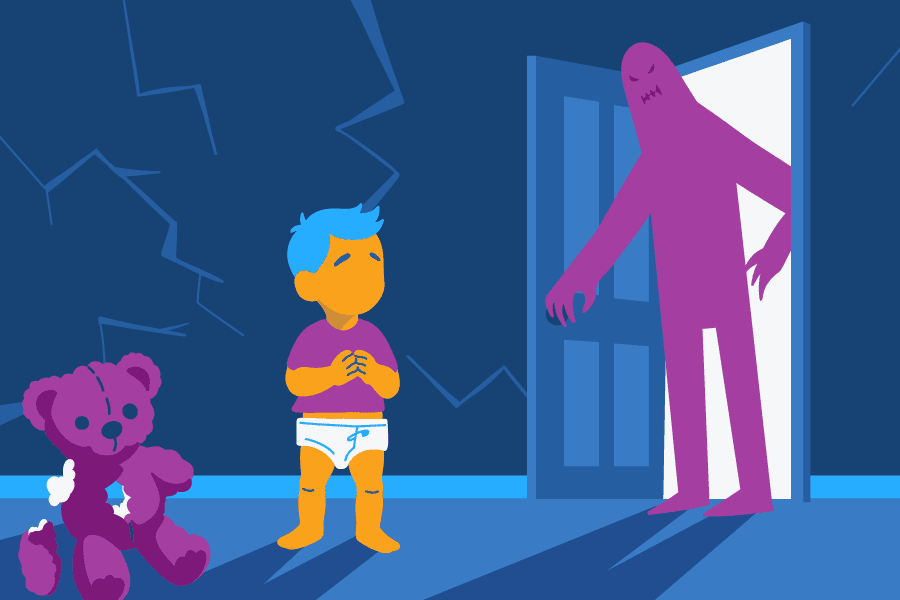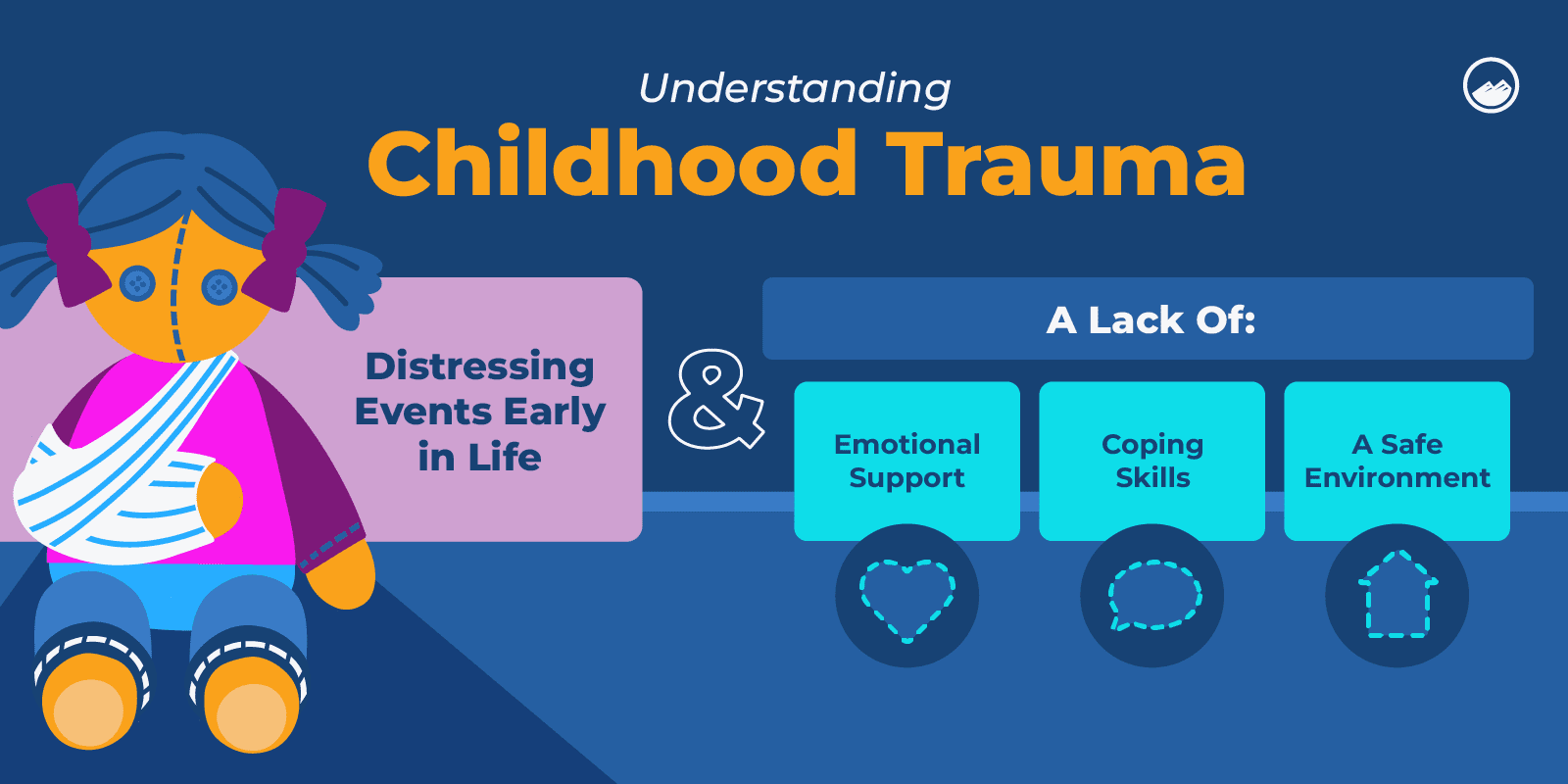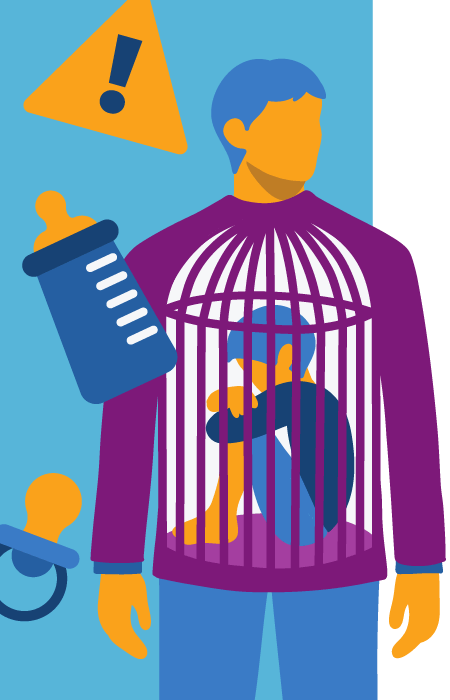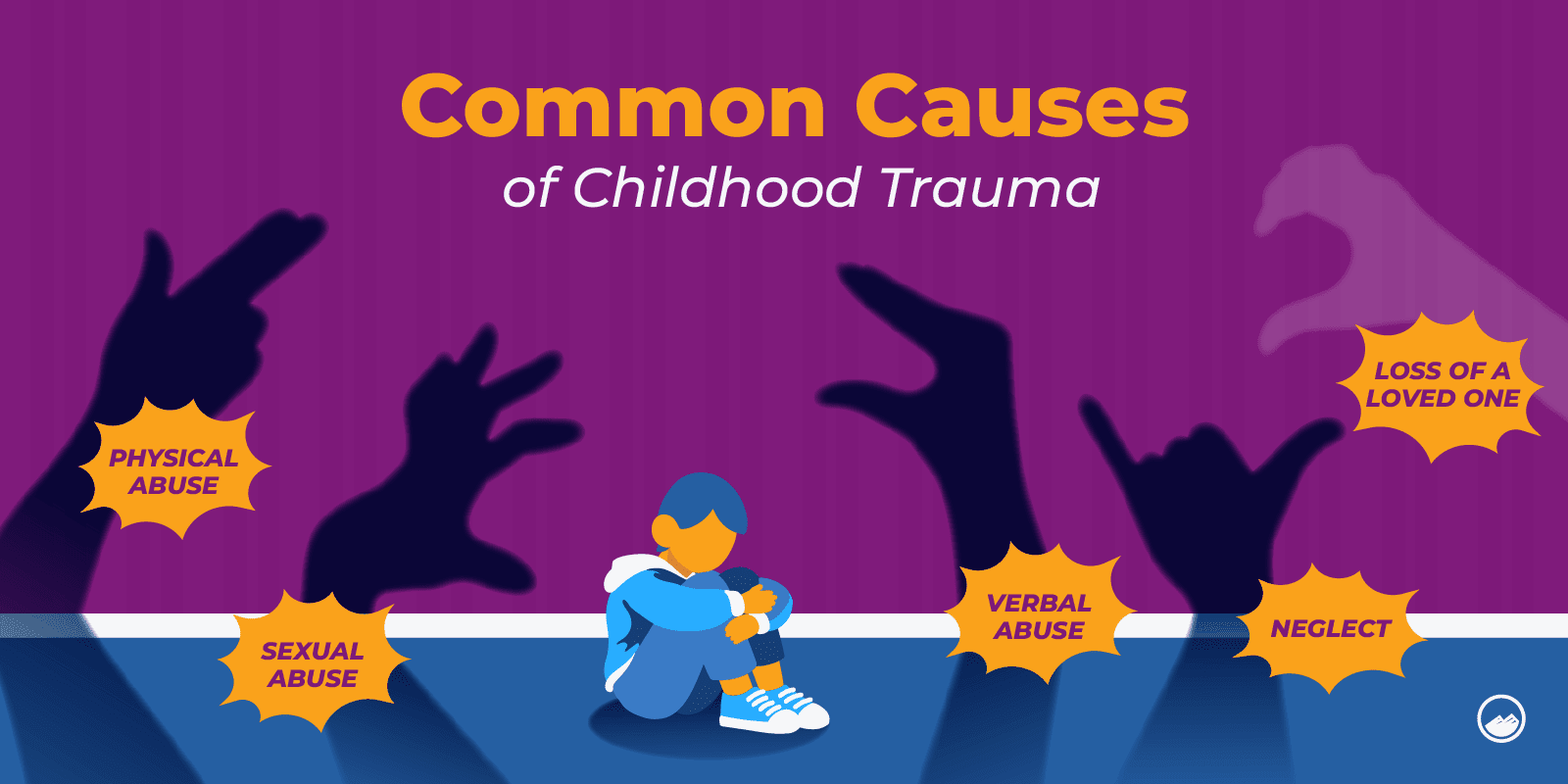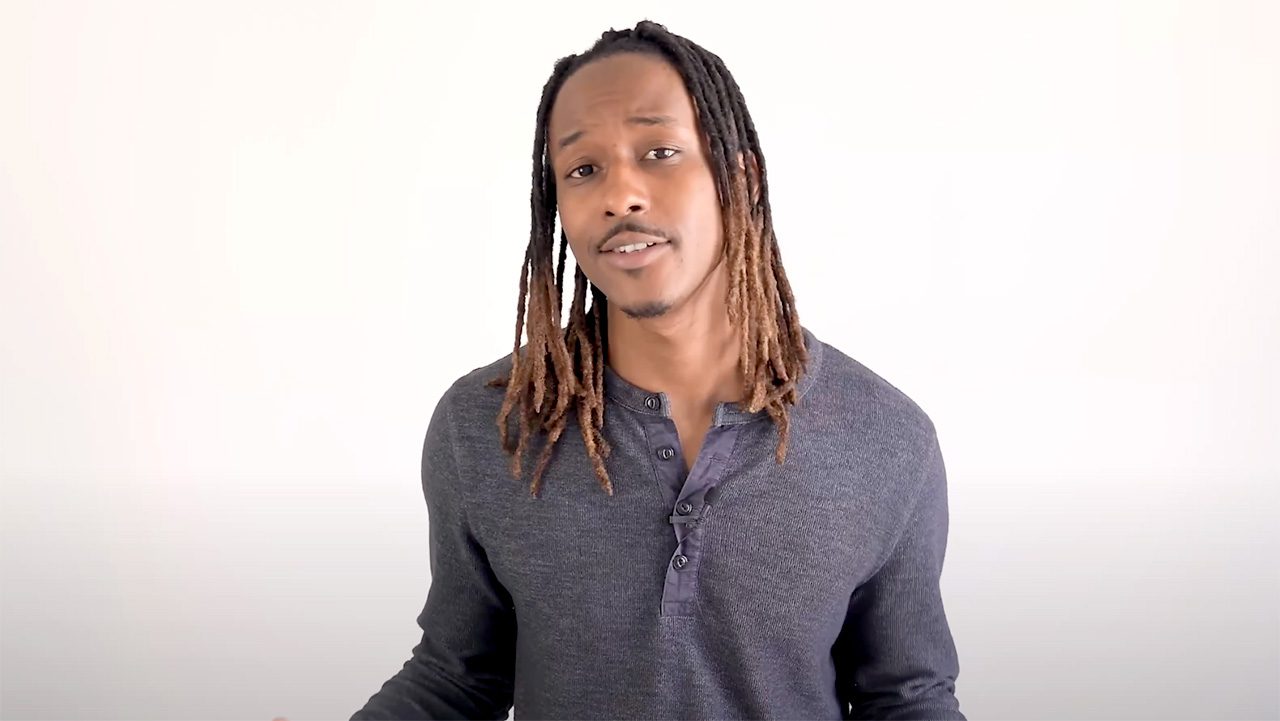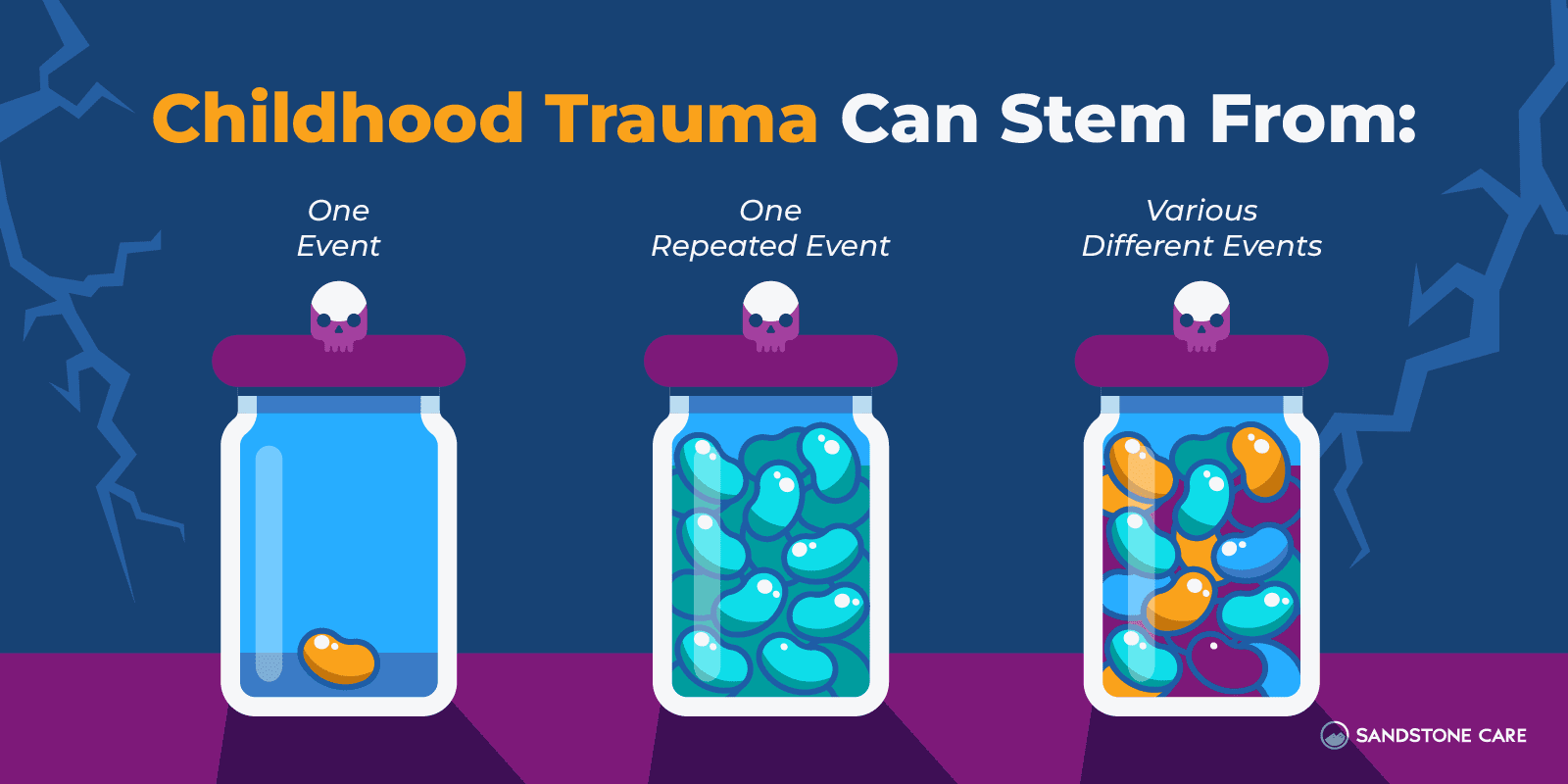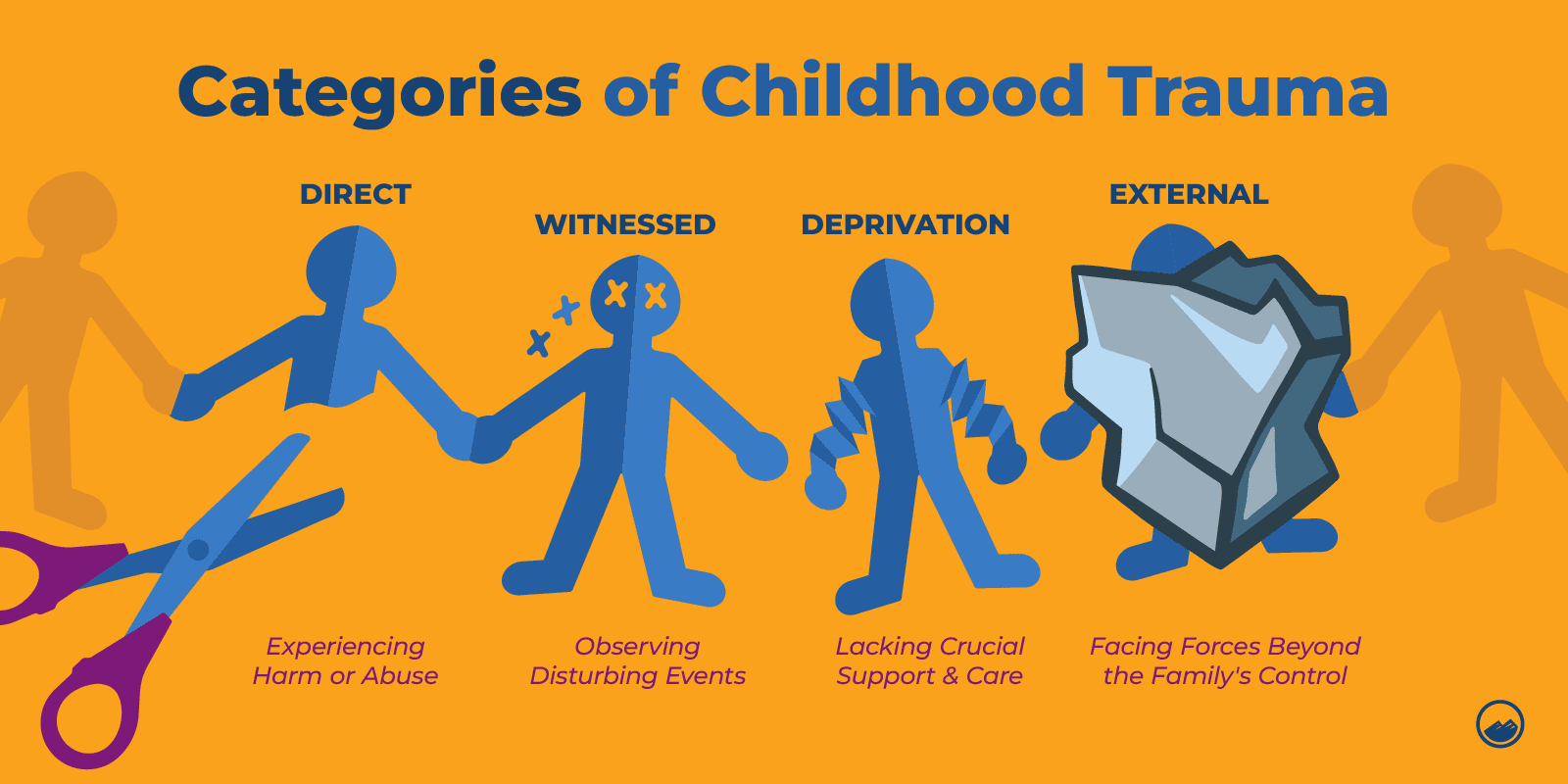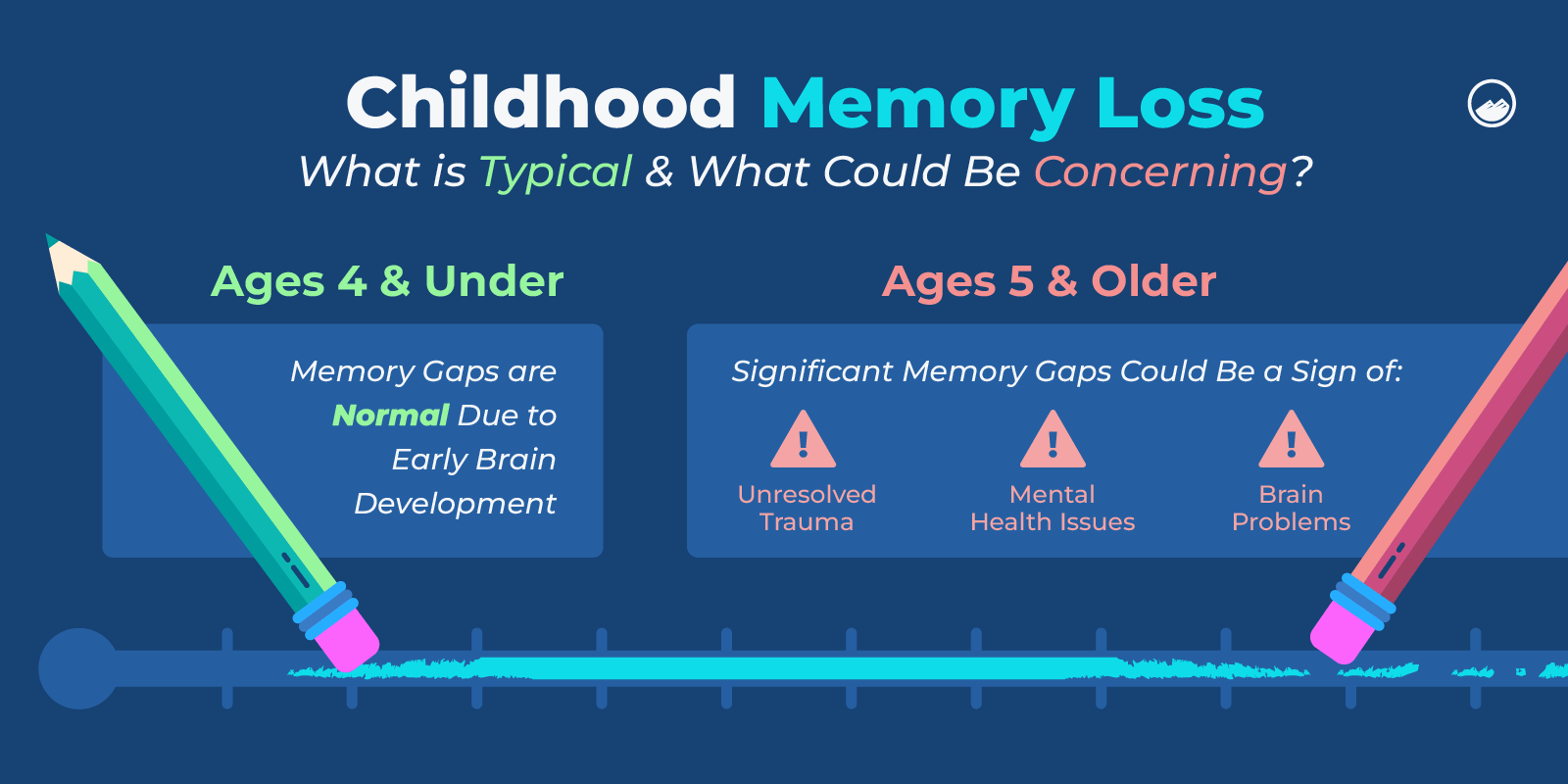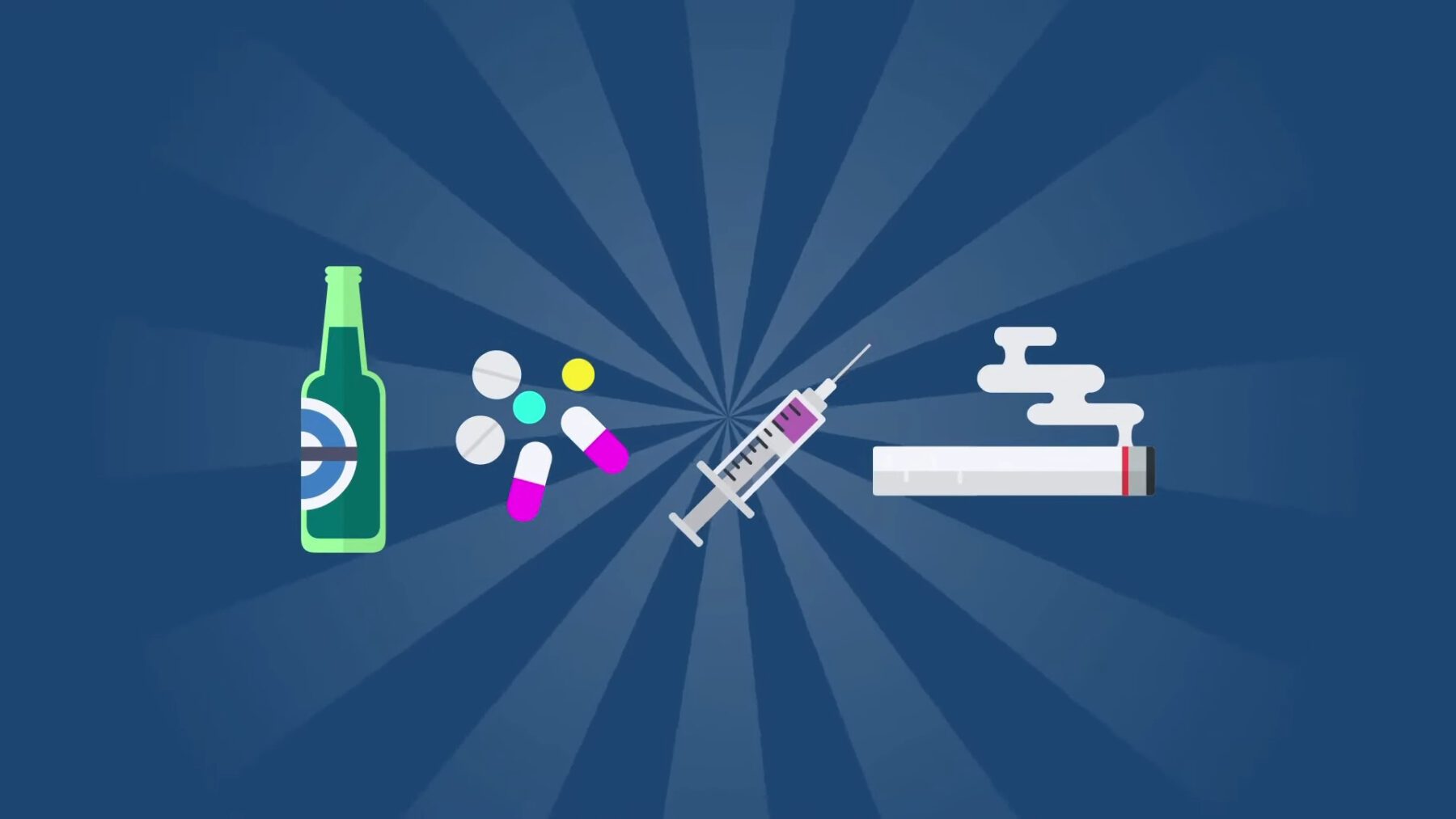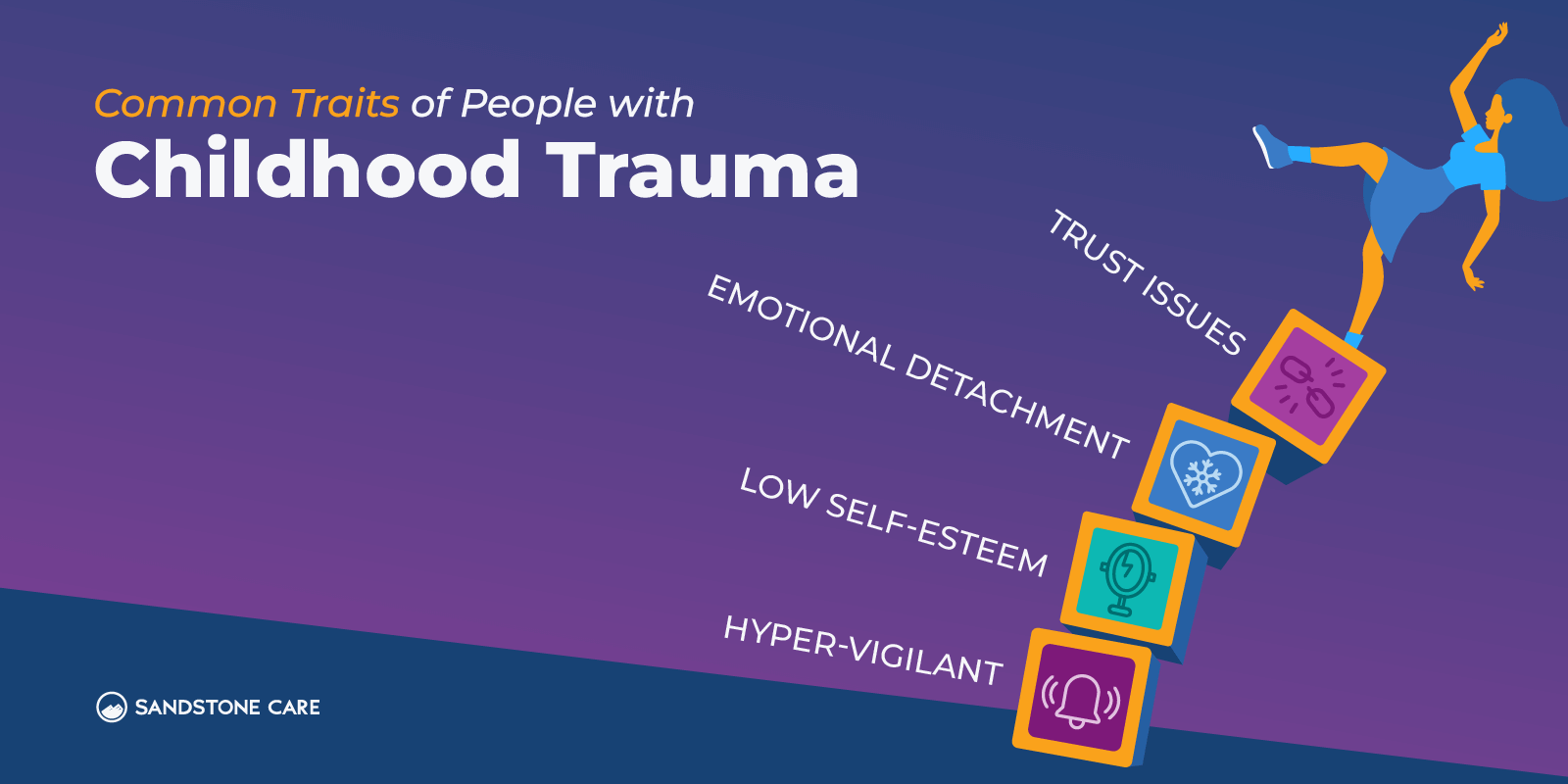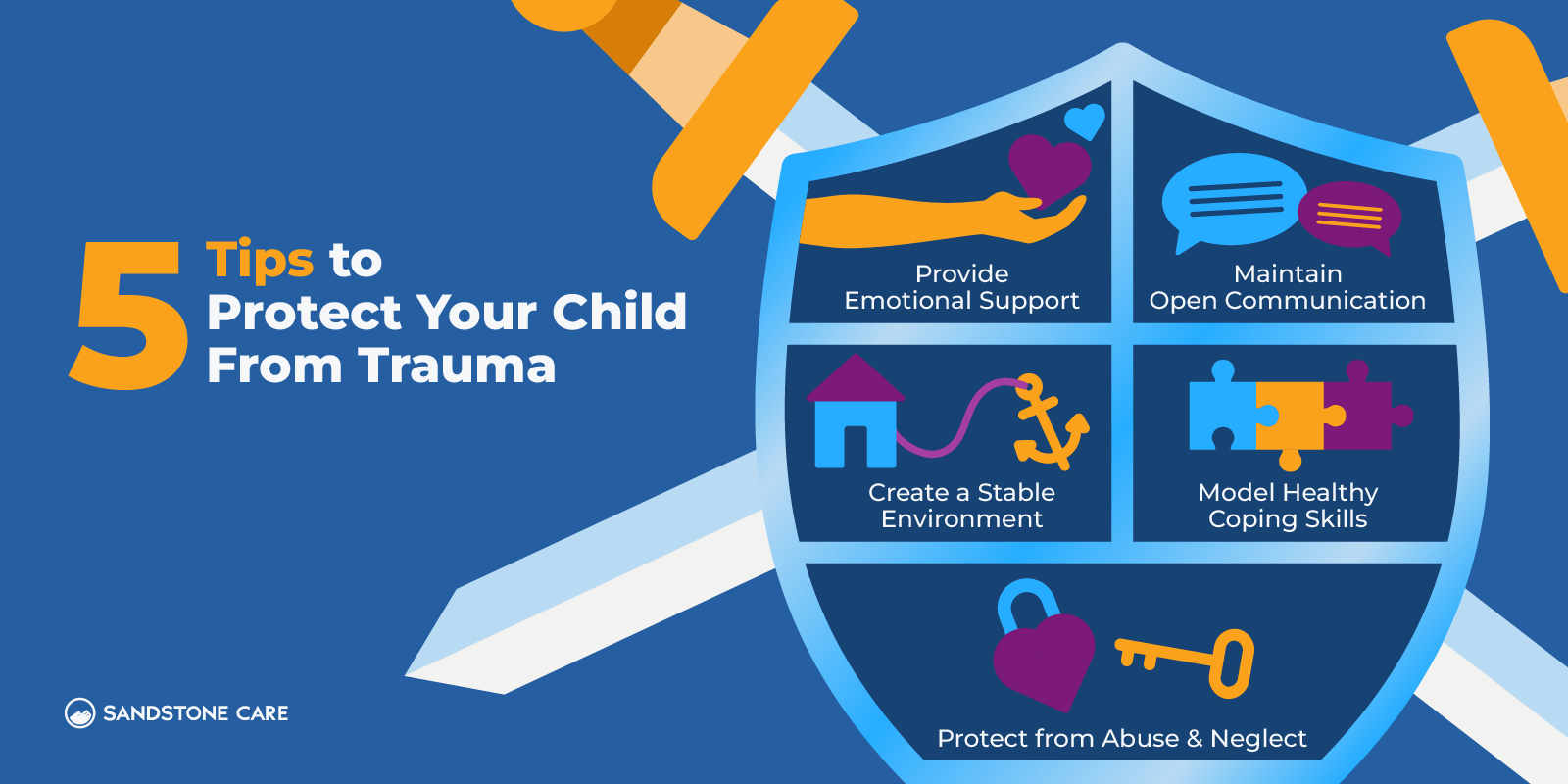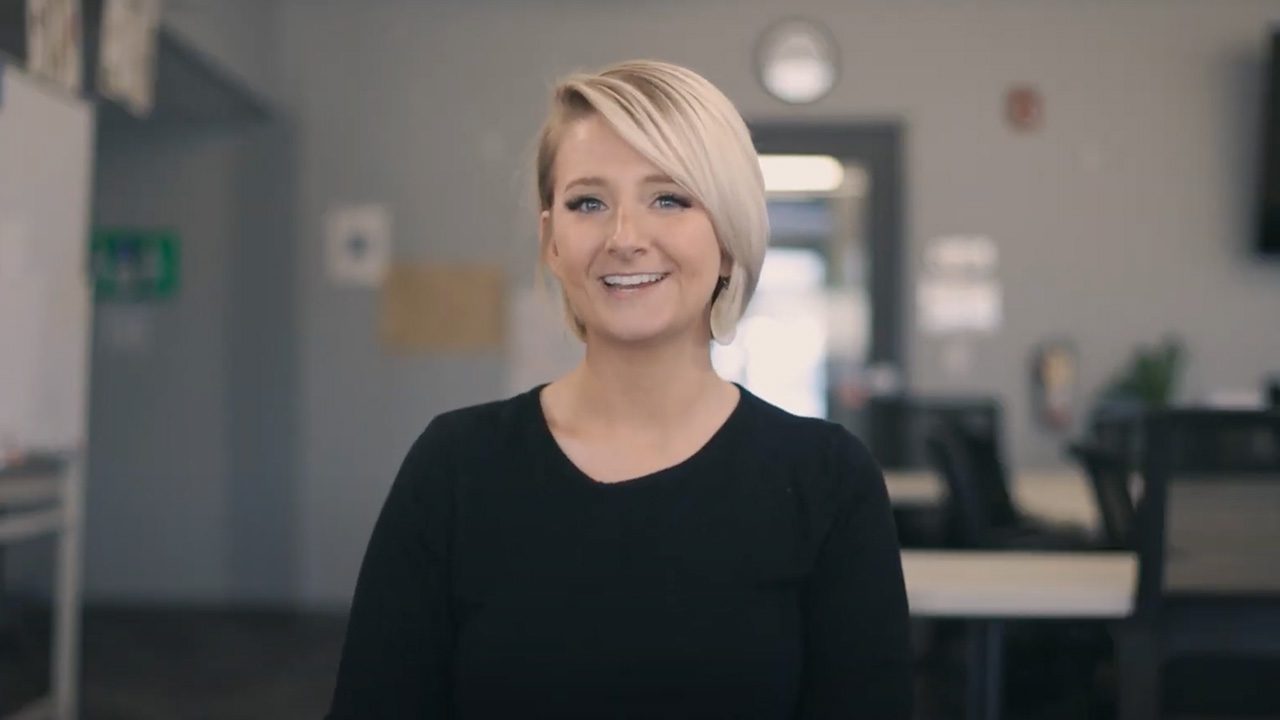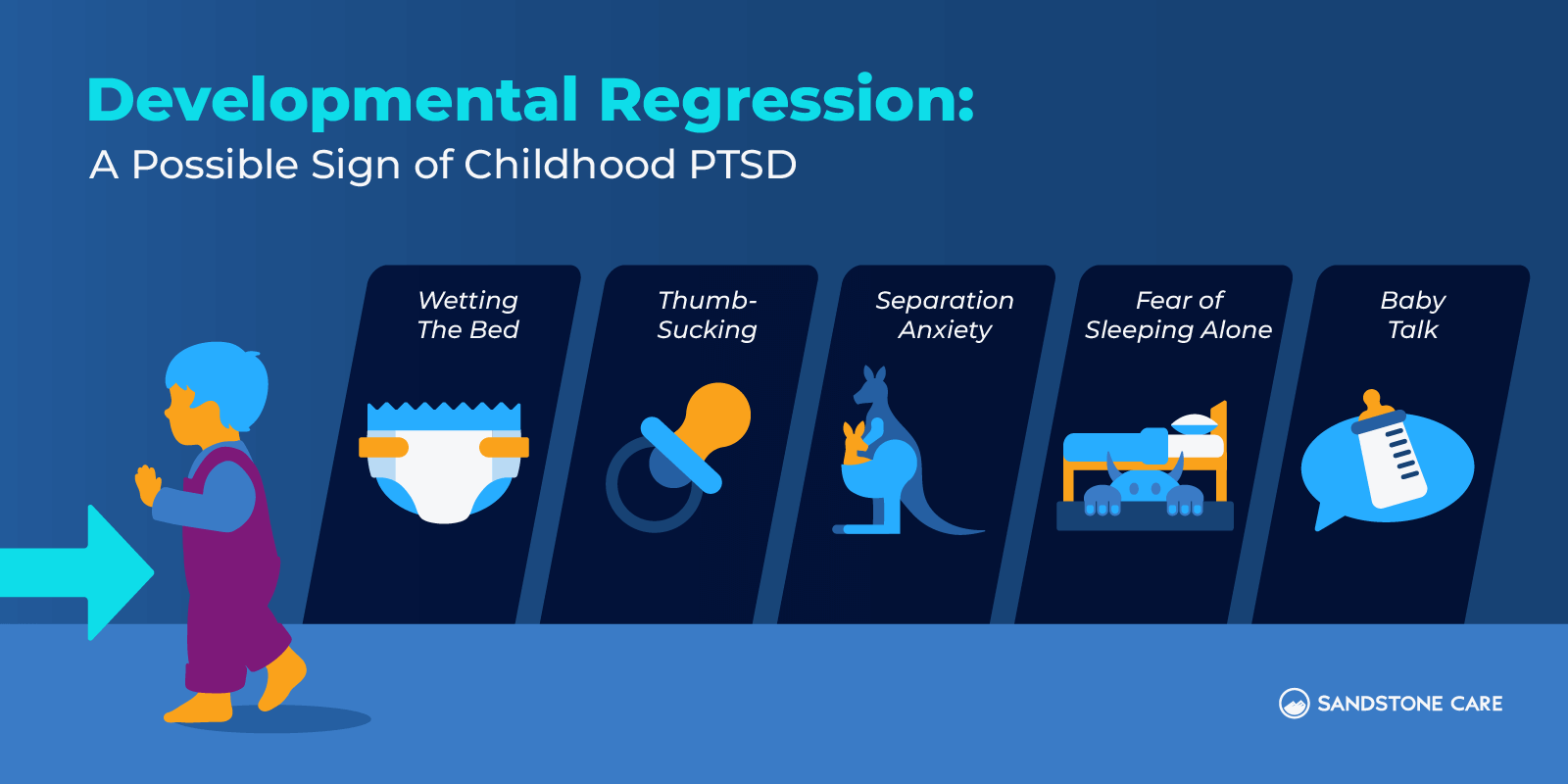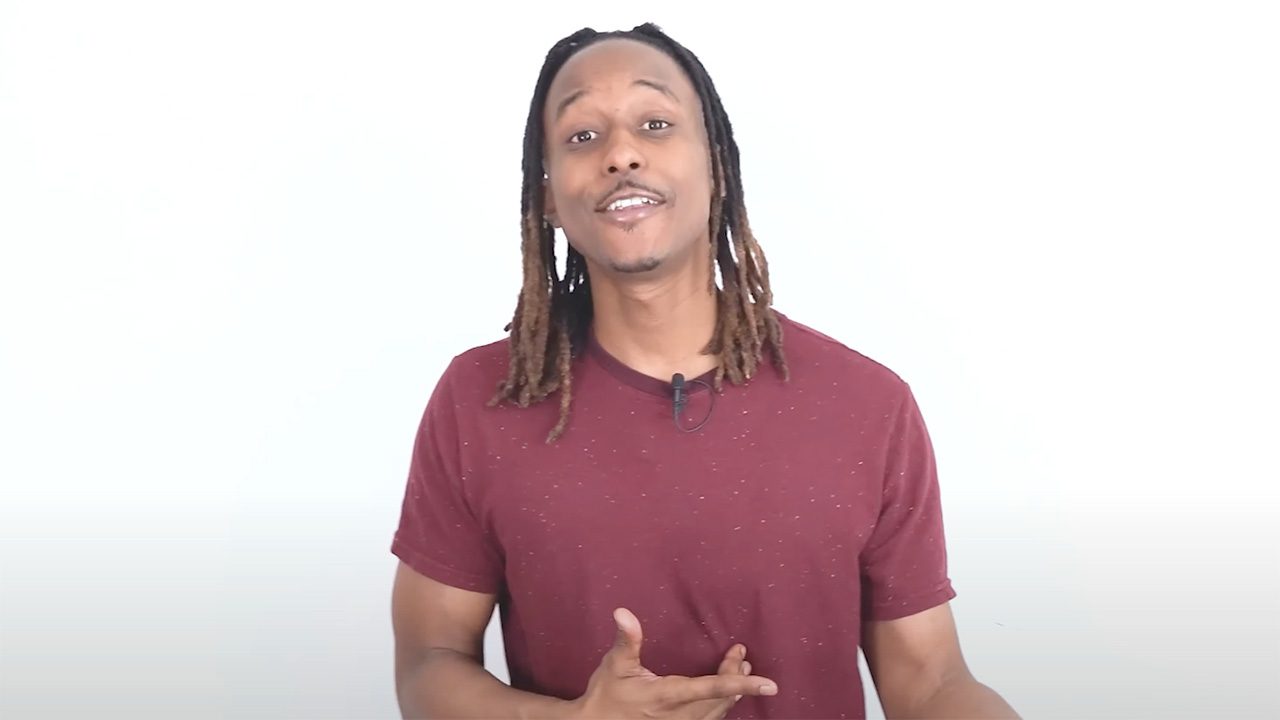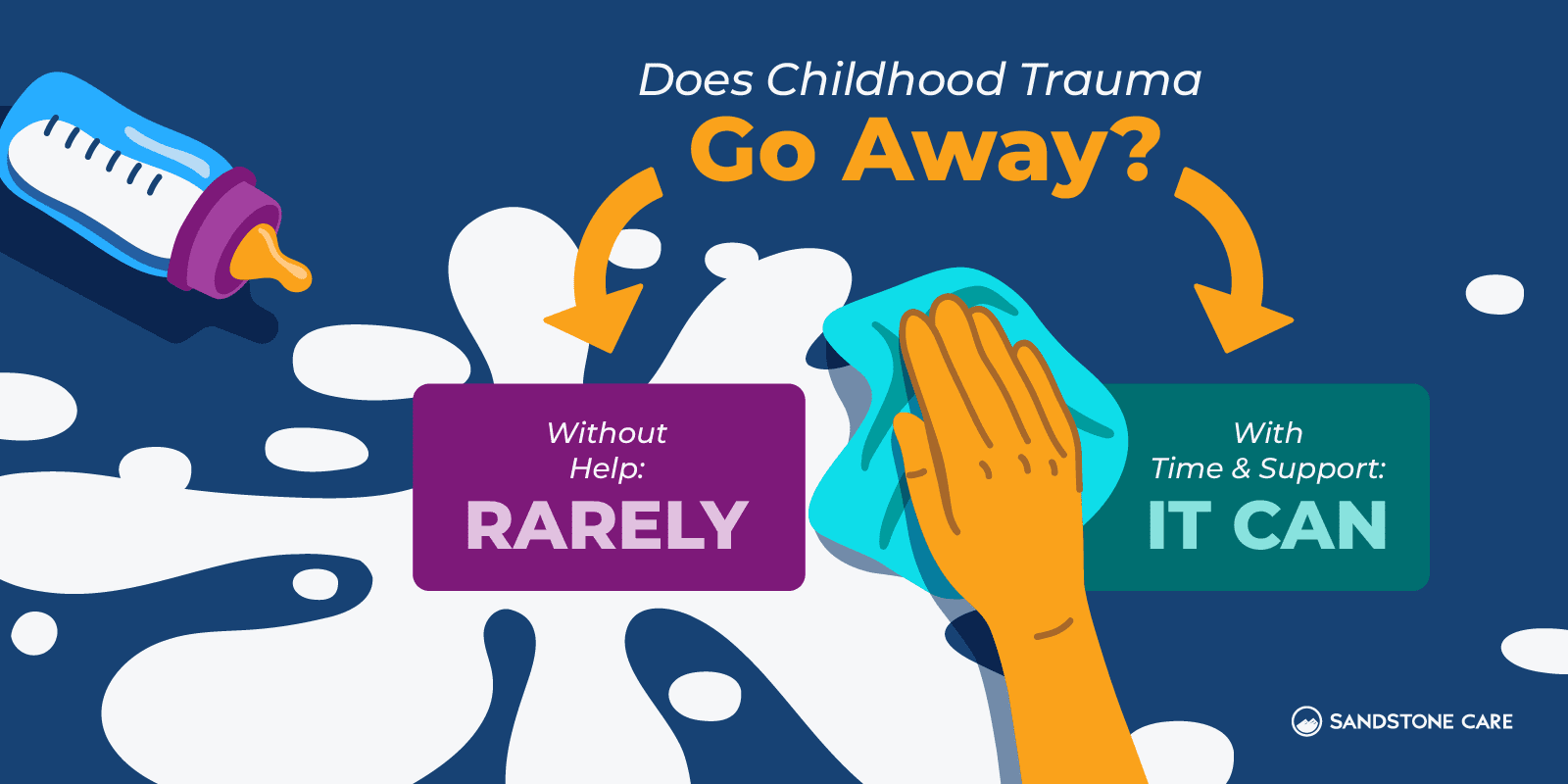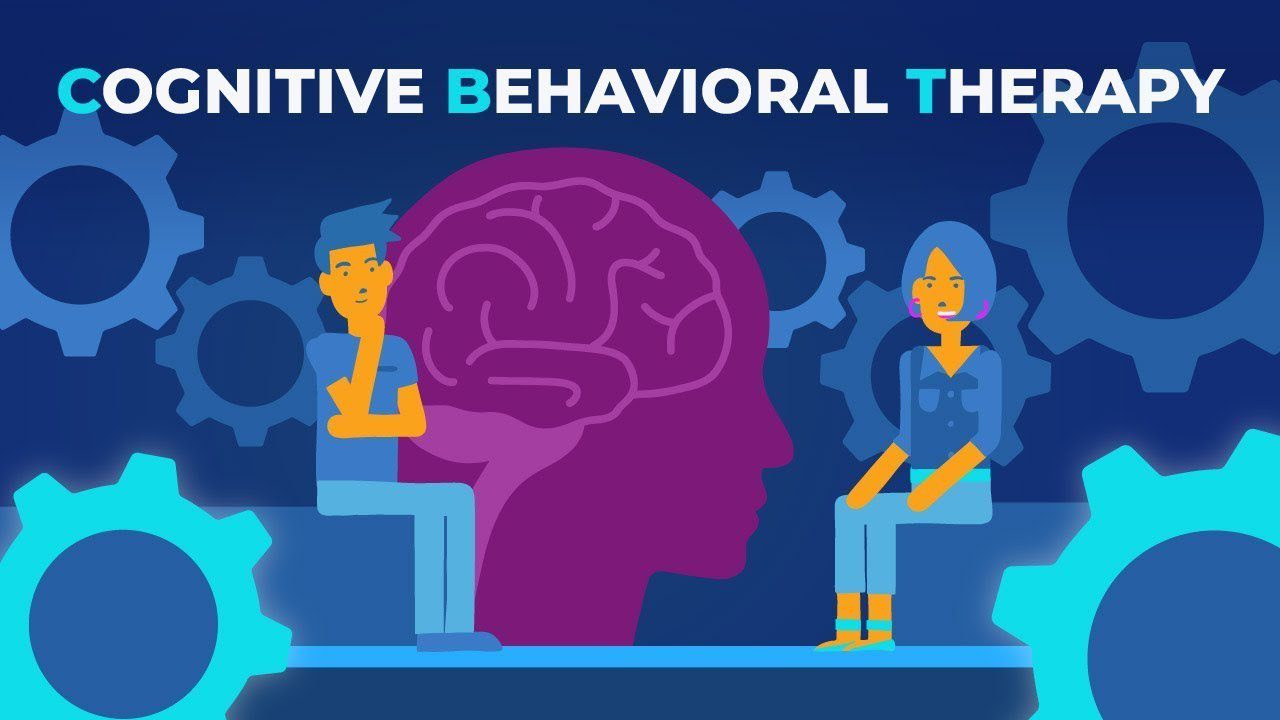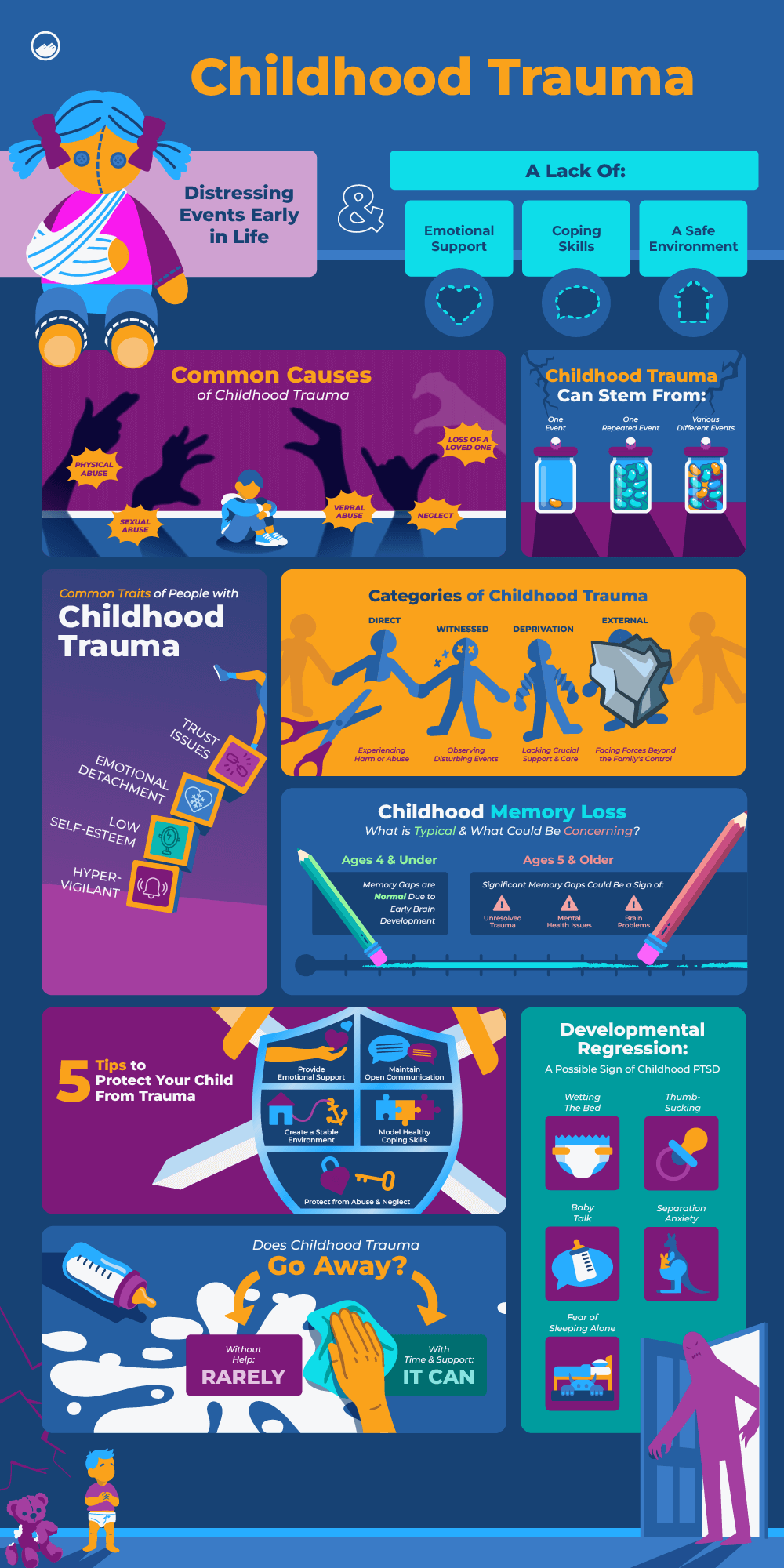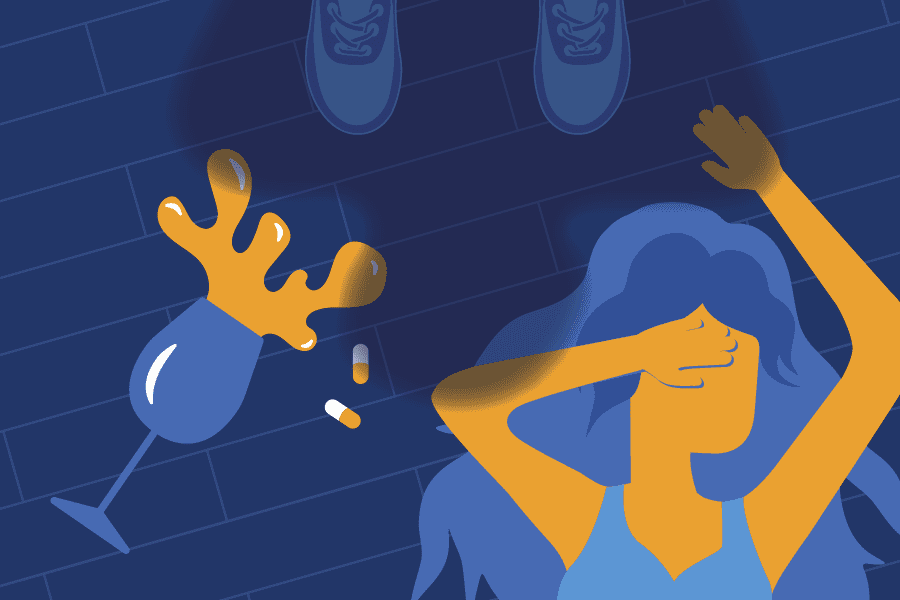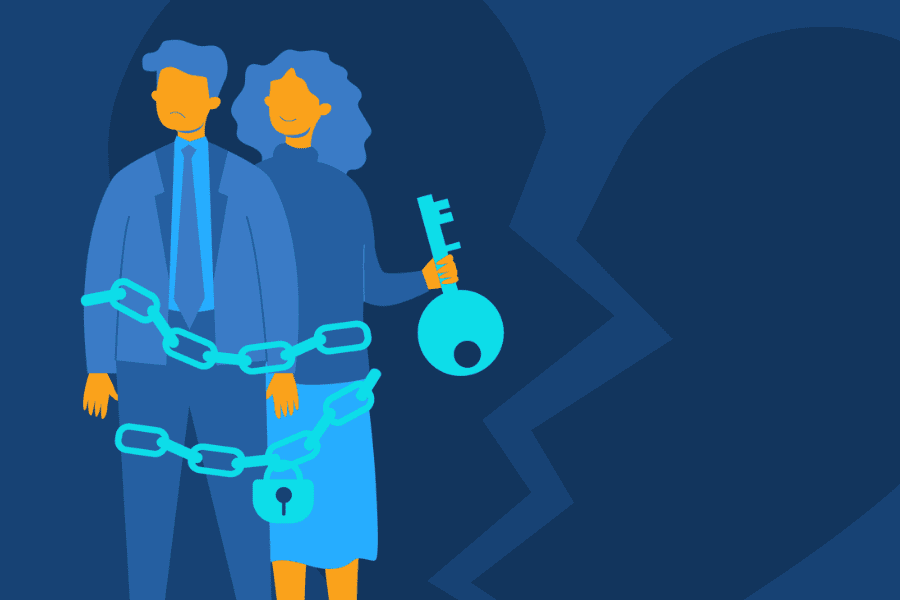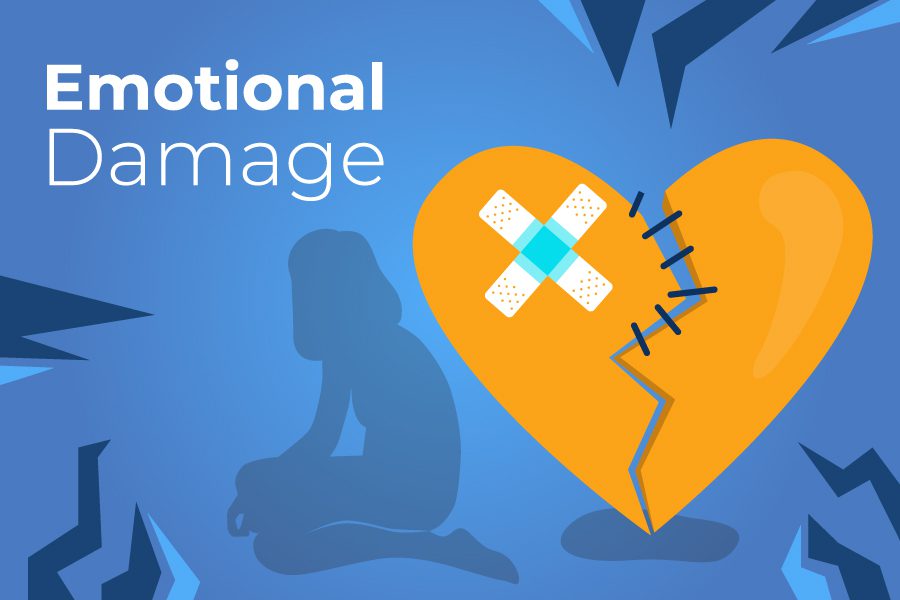Childhood Trauma Overview
What Is Childhood Trauma?
Childhood trauma often refers to the emotional, mental, and physical effects caused by a distressing or painful experience during childhood.
According to the Substance Abuse and Mental Health Services Administration (SAMHSA), more than two-thirds of children have reported at least one traumatic event by the time they are 16 years old.
How Does Childhood Trauma Affect Mental Health?
According to research, childhood trauma puts an individual at higher risk of developing mental health conditions, including:
- Post-traumatic stress disorder (PTSD)
- Post-traumatic stress symptoms (PTSS)
- Depression
- Anxiety
- Antisocial behaviors
- Eating disorders
- Substance use disorders
For a child who has experienced trauma, it can be difficult to express, communicate, and manage their emotions, making it difficult to ask for help from their caregivers when they need it.
They will often struggle to manage their tasks and goals because trauma can affect their executive function.
It can also lead to interpersonal challenges; many children who have experienced trauma might have difficulty trusting others, or they might isolate themselves from other people.
Some children may begin acting younger than their actual age, by bed wetting, throwing tantrums, or crying more easily. This is called age-regression.
Childhood trauma can also contribute to a low self-image and low self-esteem.
What Causes Childhood Trauma?
Traumatic experiences that can cause childhood trauma can include:
- Physical or sexual abuse
- Witnessing domestic violence
- Experiencing or witnessing violence in the community or at school
- Loss of a loved one
- Neglect
- Assault
- Natural disasters
- Terrorism
- Serious accidents
- Life-threatening illnesses
- War or refugee experiences
- Military-related experiences, such as the loss of a parent, deployment, or serious injury of a loved one
At What Age Is Trauma Most Impactful?
During the early childhood years, the brain is still going through major development and is more susceptible to damage and changes in brain functioning due to trauma.
Studies show that trauma before the age of 12 specifically elevates the risk for depressive symptoms, major depressive disorder, and other mental illnesses.
Does Everyone Have Childhood Trauma?
No. Many people will experience a traumatic event or exposure during their lives, but not everyone will have a trauma response to it.
Others may never experience a traumatic event, and are not faced with the stressors that cause trauma-caused mental health conditions.
Types of Childhood Trauma
What Are Examples of Childhood Trauma?
Examples of childhood trauma can include:
- Bullying
- Community violence
- Emotional abuse
- Complex trauma, which involves exposure to multiple traumatic events
- Natural disasters
- Homelessness
- Domestic violence or partner violence
- Child abuse
- Medical trauma events and serious illness
- Physical abuse or assault
- Religious Trauma
- Sexual abuse or sexual assault
- War violence
- Terrorism
- Grief from losing a loved one
Many trauma survivors note that they experienced more than one type of childhood trauma while they were growing up.
What Is Considered Childhood Trauma?
Childhood trauma is when an event happens that is frightening, dangerous, or violent and poses a threat to an individual under 18 years old.
Trauma can refer to a variety of different events, such as abuse, neglect, community violence, unstable households, natural disasters, war, and much more.
What Are the 4 Types of Childhood Trauma?
The 4 main types of adverse childhood experiences include:
- Abuse
- Neglect
- Household challenges
- Community incidents
What Is the Most Damaging Type of Trauma?
Trauma impacts everyone in different ways, so there is no type of trauma that is always more damaging than another. However, trauma that happens during childhood can have devastating effects since the brain is still developing.
It is difficult to compare trauma, especially because factors such as length, personality, severity, and access to resources can change the way the brain responds to traumatic experiences.
What Are Adverse Childhood Experiences (ACES)?
Adverse Childhood Experiences (ACEs) refer to potentially traumatic events that occur during childhood (before age 18) and can have lasting effects on a person’s mental and physical health.
These experiences include a range of stressful or harmful situations, such as abuse, neglect, and household dysfunction.
These events must occur between the ages of 1 and 17 to be considered true adverse childhood experiences.
Signs of Childhood Trauma
Is Not Remembering Your Childhood a Sign of Trauma?
Sometimes trauma can cause you to not remember parts of your childhood.
However, It is not uncommon for people to not be able to remember certain parts of their childhood, especially before the ages of 2 and 3.
Just because a person can’t remember certain things about their childhood does not alone mean that they have trauma.
Sometimes trauma can cause a person’s mind to “block out” or forget some things that happened to them.
Dissociative amnesia can happen when a person experiences a one-time event or when they have experienced prolonged trauma.
With dissociative amnesia, a person can have “gaps” in their memory and make a person forget certain things about themselves as the brain responds to trauma.
How Does a Traumatized Child Act?
Common signs of trauma in young children can include:
- Being detached or distant
- Isolating themselves
- Problems with eating and sleeping
- Acting younger than their actual age
- Difficulty regulating their emotions
- Intense reactions
- Engaging in self-harm or risky behaviors
It is also important to remember that trauma affects everyone differently and that trauma doesn’t look the same for everyone who experiences it.
Effects of Childhood Trauma
What Are the Long-Term Effects of Childhood Trauma?
Long term effects of child trauma include:
- Increased risk of depression, anxiety, and other mental health disorders
- Lack of trust
- Interpersonal challenges
- Self-destructive behaviors
- Difficulty accomplishing everyday tasks and maintaining responsibilities
- PTSD
- High levels of stress
- Impacted brain functioning and cognitive skills
Individuals who experience trauma in childhood are also at a higher risk of health conditions, including heart disease, diabetes, stroke, obesity, and addiction.
How Does Childhood Trauma Affect Health Across a Lifetime?
Adverse experiences in childhood can put people at a higher risk of health problems, including heart disease, cancer, asthma, cognitive delays, and mental health disorders.
Some trauma survivors may also delay asking for help for their health issues, which can cause them to get treatment and interventions later than those without trauma.
How Does Childhood Trauma Affect the Brain?
Psychiatry research shows that abusive and neglectful experiences in childhood are associated with negative impacts on brain function in adulthood.
Results show that childhood trauma can affect cognitive and executive function and impact regions of the brain, including the visual, auditory, linguistic, and motor cortex, as well as communication in the temporal and supplementary motor cortex.
How Does Childhood Trauma Affect Relationships?
Trauma experienced in childhood can make it difficult for people to communicate how they feel, to trust others, and to build healthy attachments in relationships later in life.
However, it is important to know that getting help can help a person work on the effects trauma has had on their life and improve their interpersonal relationships.
How Does Childhood Trauma Affect Personality?
Childhood trauma can lead to low self-esteem, loss of identity, and attachment challenges.
Studies show that childhood trauma can be associated with unhealthy coping mechanisms and personality traits such as trust issues and being hypervigilant.
Mental Health Conditions and Childhood Trauma
Can Childhood Trauma Cause ADHD?
Studies show that the prevalence of childhood trauma can be linked to the development, persistence, and severity of ADHD symptoms.
Can Childhood Trauma Cause Anxiety?
Research shows that childhood trauma has been seen as a risk factor for developing anxiety.
While many people also have genetic histories of anxiety, these histories are often triggered more fully by early traumatic experiences.
Can Childhood Trauma Cause Autism?
Although autism is believed to be primarily caused by genetic and neurodevelopmental factors, stress and trauma can be seen as a risk factor for autism.
While it is likely not the main cause, trauma can certainly worsen core autism spectrum disorder symptoms.
Can Childhood Trauma Cause Bipolar Disorder?
Research shows that childhood trauma has been linked to earlier onset and higher severity of bipolar disorder in adulthood.
Childhood trauma can also impact brain development, which can make it more likely for victims to have emotional regulation challenges.
Struggles with emotional regulation is also a risk factor for developing or worsening bipolar disorder.
Can Childhood Trauma Cause Tics?
No, tic disorders are their own condition.
However, there have been reports of trauma-associated psychogenic tics.
Can Childhood Trauma Cause Memory Loss?
When children experience trauma, the brain can repress memories as a way to cope with the difficult feelings and experiences that come with the traumatic experience.
If someone has experienced childhood trauma, they might not be able to remember certain parts of their childhood or have “gaps” in their memory.
PTSD Childhood Trauma
Can You Have PTSD From Childhood Trauma?
Childhood trauma can lead to a wide range of negative effects throughout childhood and adulthood, including the development of post-traumatic stress disorder (PTSD).
Symptoms of PTSD From Childhood Trauma
Common symptoms of PTSD from childhood trauma can include:
- Emotional distress or numbness
- Unexplainable aches and pains
- Behavioral changes such as isolation or avoidance
- Nightmares and flashbacks
- Difficulty keeping up with daily responsibilities
- Sleep problems
- Difficulty concentrating
- Memory problems
- Engaging in risky behaviors
- Ongoing negative emotions about oneself or the world
These symptoms can sometimes change over time as young people begin to experience the pressures of career and family life.
What Does PTSD Look Like in a Child?
Signs of PTSD in a child can include:
- Reliving traumatic events over and over again
- Having nightmares and difficulty sleeping
- Irritability
- Anger outbursts
- Intense fear
- Feelings of sadness or worthlessness
- Emotional numbness
- Avoiding certain people or places
- Lack of positive emotions
- Being withdrawn or isolating themselves, even from family members
PTSD in children younger than 6 years old can also cause symptoms such as:
- Wetting the bed
- Forgetting how to talk or having delays in talking
- Acting out the traumatic event during playtime
- Being clingy with parents or other adults
It is critical that families who are concerned about a child who has experienced a traumatic event speak to a pediatric mental health professional.
Childhood Trauma in Adults
What Is Childhood Trauma in Adults Called?
Childhood trauma can manifest in adults in a variety of different ways.
Some might develop PTSD or what is known as complex post-traumatic stress disorder.
Complex post-traumatic stress disorder is related to traumatic events that have happened in a person’s past.
Childhood trauma can lead to complex PTSD in adulthood.
Complex PTSD occurs from exposure to traumatic events or a series of traumatic events that are usually prolonged and repetitive.
These types of traumatic events can include domestic violence, childhood abuse, torture, or genocide.
What Are the Symptoms of Childhood Trauma in Adulthood?
Symptoms of childhood trauma in adulthood can include:
- Reliving the traumatic events
- Anxiety and depression
- Avoidance
- Difficulty trusting others
- Impacted sense of safety
- Challenges in interpersonal relationships
- Unexplained anger or irritability
- Disturbing flashbacks
- Physical health issues and unexplainable aches or pains, such as frequent headaches or stomachaches
- Mental health problems
Others may begin to fall into substance use disorders or become self-destructive in their attempt to cope with the experiences that they had during childhood.
Why Am I Suddenly Remembering My Childhood Trauma?
A trigger might cause a person to suddenly remember their childhood trauma.
Triggers can be a sound, smell, feeling, place, or even a person.
Sometimes, a person might hold on to trauma in their mind or body and bottle it up, only for it to be released long after the traumatic event occurred.
This might happen when a person is triggered or when a person has gotten to a point in their life when they finally feel safe enough to allow themselves to process the things that have happened in their life.
Why Does My Childhood Trauma Still Affect Me?
Childhood trauma can leave lasting effects on a person that can take time to heal from.
Additionally, when a person does not get help for the trauma they have experienced during childhood, the effects can worsen and stick over a long period of time.
If you are facing challenges with childhood trauma, it is important to get help for you, your health, and your well-being.
How to Heal From Childhood Trauma
Does Childhood Trauma Ever Go Away?
Childhood trauma does not just go away by itself, especially if a person has not addressed it with a professional.
However, with time and help, a person can start to heal from childhood trauma and live a fulfilling life.
Why Is Healing From Childhood Trauma So Hard?
Traumatic experiences from childhood can be extremely difficult to process and bring up a wide range of difficult emotions.
Trauma has an effect on your brain and body, making it hard to understand what has happened, cope with it, or respond to it.
Healing From Childhood Trauma
How Do You Break the Cycle of Childhood Trauma?
Breaking the cycle of childhood trauma means becoming aware of the challenges you face and getting professional help.
What Is the Best Type of Therapy for Childhood Trauma?
Some of the most common therapies used to help treat childhood trauma include:
- Trauma-focused cognitive behavioral therapy (TF-CBT)
- Eye movement desensitization and reprocessing therapy (EMDR)
- Prolonged exposure therapy
- Art therapy
- Cognitive processing therapy
Everyone responds to therapy in different ways, so the best type of therapy for childhood trauma is the one that is custom and unique to fit the individual’s needs.
Childhood trauma support groups can also help someone feel safe and comfortable to share their experiences and relate to others.
How to Support Someone With Childhood Trauma?
There are many ways to support someone with childhood trauma, including:
- Spending quality time with them
- Being a good listener when they need someone to talk to
- Not forcing them to share things with you or trying to “fix” them
- Helping them practice grounding techniques such as breathing exercises
- Help them get connected to a mental health professional
- Don’t take their feelings personally
- Help promote healthy daily routines and habits
- Assure them you are there for them when they need you
- Validate their feelings about their experiences
It is also important to make sure that you set healthy boundaries to be able to take care of yourself while you are taking care of them.
Set aside time to breathe, journal, or try grounding exercises to keep yourself from burning out.
How To Prevent Childhood Trauma?
Some protective factors for trauma can include:
- Nurturing parenting styles
- Social connections and support
- Stable family relationships
- Adequate housing
- Safe and positive relationships
It is important to note, that while these things can help lower the risk of a child experiencing a traumatic experience, there is no foolproof way to prevent childhood trauma.

